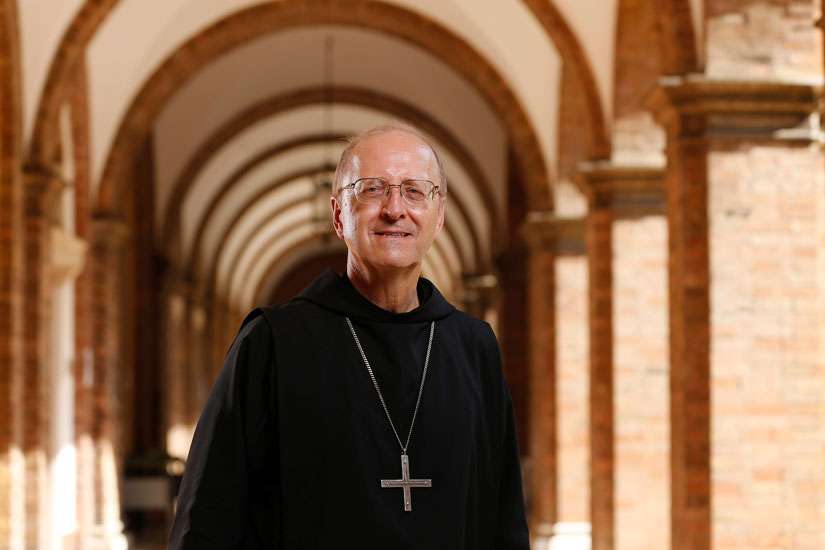The new room at the Rome monastery of St. Anselm comes with Abbot Polan's election Sept. 10 as abbot primate of the worldwide Benedictine Confederation, a network of men's monasteries.
The abbot primate is not the superior general of the Benedictine order because the monasteries are independent. Instead, the abbot primate is called to represent the monks at international gatherings, promote the unity of the abbeys and priories around the world and serve as a liaison to the Vatican.
As abbot primate, he also becomes the abbot of St. Anselm in Rome and chancellor of the Benedictine's Pontifical Atheneum of St. Anselm and its Pontifical Liturgical Institute.
All of that means resigning as Conception Abbey's abbot, a position he has held for almost 20 years.
The community life with its prayer times, liturgy, work, silence, communal meals and communal recreation drew him to the Missouri abbey surrounded by corn and soy fields. As a Benedictine, he vowed stability to that community and will remain a member of the 58-member Conception community even as he serves his term as abbot primate.
"This is tough," he said during an interview Sept. 13. "I'm going to miss my community very much. I love them very much. I've worked with them for 20 years and we've accomplished many things together. It's a very talented group of men and very generous, prayerful, sacrificial and good-hearted men."
Abbot Polan, 66, expects to serve only a single eight-year term as abbot primate. He will be 74 when his term is up and the Benedictine Confederation rules do not allow monks to choose a man over 75 as abbot primate.
A Scripture scholar and translator, he was studying Italian in 1996 and preparing to move to St. Anselm as a professor. Instead, he was elected abbot of Conception Abbey. Although he describes his Italian as simply "fair," he has been using it once a year when he has come to Rome to help with the Benedictines' annual 10-day course for those involved in formation.
He has done translations for the New American Bible and led the effort to complete a new translation of the Psalms, known as the Revised Grail Psalter, which the U.S. bishops' have approved for use in the liturgy.
At the Benedictine's Congress of Abbots in Rome in early September, he said, there was a growing appreciation for the growth of Benedictine religious life in Africa, Central and South America, the Philippines and India. Numbers are declining in Europe, but there is "some growth in the United States."
The communities, even within the same region or country, can vary widely, he said. The differences are seen in the work the monks do and even in the way they pray; some monasteries are known for the care with which they preserve and give new life to Gregorian chant, for example, while others have been at the forefront of the church's efforts to inculturate the liturgy.
"One of the real riches of the Rule of St. Benedictine is the latitude in the way we can live the rule," he said. "It's classical and remains usable today because it's flexible."
Abbot Polan was born Jan. 2, 1950, in Berwyn, Illinois. He entered the Benedictine novitiate at Conception Abbey in 1970 and professed his vows a year later. He studied at St. John's Abbey and University in Collegeville, Minnesota, and was ordained to the priesthood in 1977.
He did his doctoral studies in sacred Scripture at St. Paul University in Ottawa and returned to Conception Abbey to teach courses in Old Testament and music.

